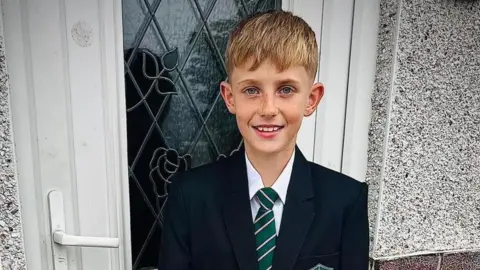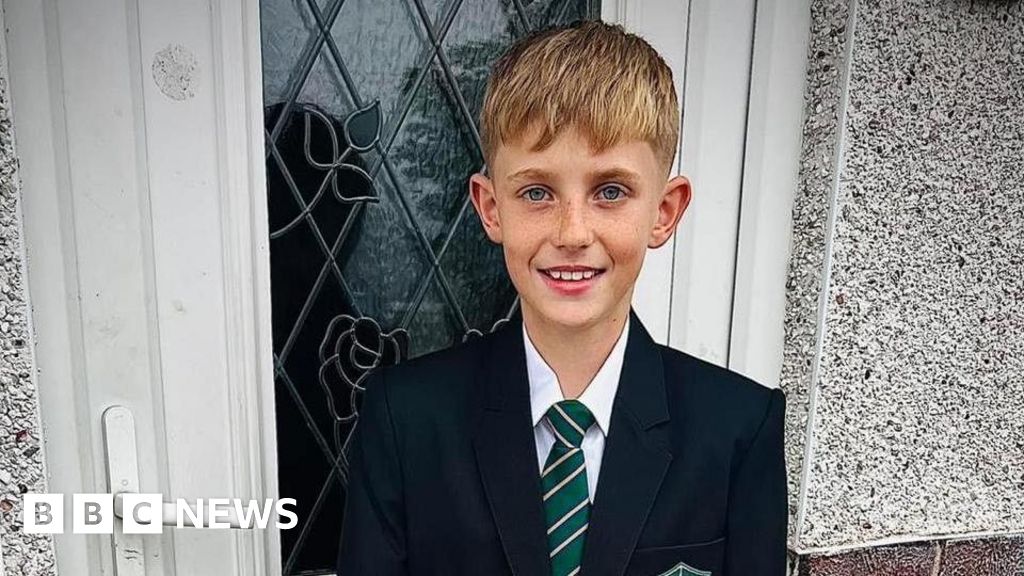 Family handout
Family handout
Riley Townsend and his family had been in contact with mental health services for several years
Medical staff have been questioned over delays to assessments of a 12-year-old boy who took his own life.
Riley Townsend, from Sutton-in-Ashfield, Nottinghamshire, died on 1 September 2024 after struggling with his mental health for several years.
Nottinghamshire Assistant Coroner Amanda Bewley heard that while Riley had been diagnosed with ADHD, an assessment for autism had been sought since 2021.
But Sherwood Forest Hospitals NHS Foundation Trust said this was a complex case and his treatment was not dependant on a diagnosis.
The inquest at Nottingham Coroner’s Court heard Riley’s family had approached mental health services when he was five, due to his behavioural issues.
Regular contact with GPs and mental health teams followed and Riley was later diagnosed with ADHD and prescribed medication in 2021.
While this treatment was ongoing, his family, along with GPs, his school and specialist nurses all advised he be assessed for autism.
In a statement Child and Adolescent Mental Health Services said they were called by the family in February 2023 as Riley’s behaviour had become worse with him showing “anger and frustration” which was “having an effect on the household”.
But Ms Bewley said it looked like it was not until May 2023 the “nettle is grasped” and concrete action towards a diagnosis was taken by the trust.
And while a number of assessments and consultations were then undertaken, Riley did not have a formal diagnosis before he died.
‘Worried about the delay’
Ms Bewley said it was impossible for her to say what impact any diagnosis would have had on Riley.
“What worries me is that he didn’t have the opportunity.
“I’m worried about the delay from the first point when autism was highlighted as an issue,” she said.
Esther Corker, consultant community paediatrician at Sherwood Forest Hospitals NHS Foundation Trust, said Riley’s ongoing treatment for ADHD delayed his autism assessment and even a full diagnosis would not have substantially changed his contact with health services.
She said: “In complex cases where a diagnosis is taking longer we offer support for the behaviours with or without a diagnosis.”
The inquest continues.
If you have been affected by the contents of the article, support is available through the BBC Action Line website.


